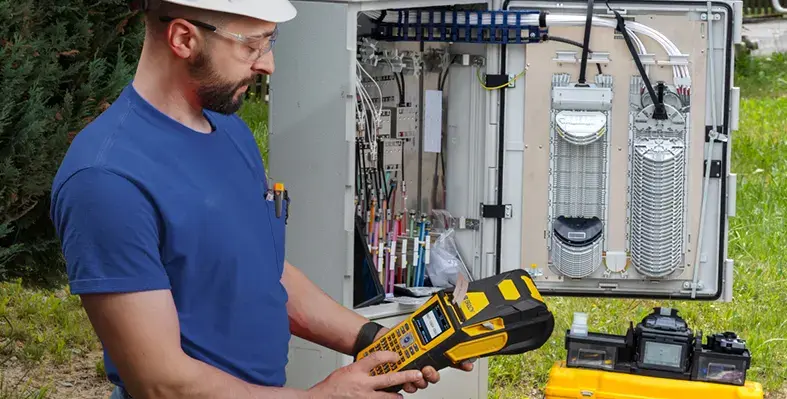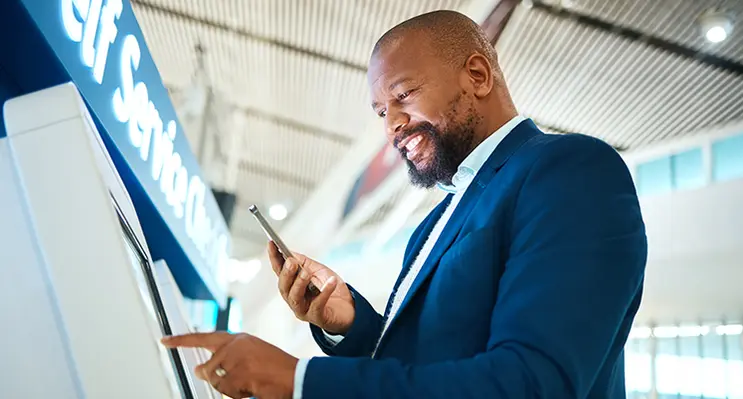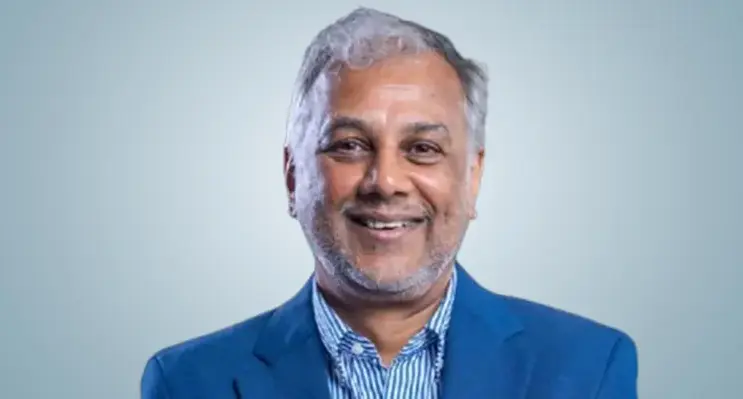In the rain, heat or cold. In dark, tight crawlspaces, manholes or high up in antennas and poles. If you need to print labels, Brady enables you to do that fast, right on the first try and with labels that last up to 20 years
From self-laminating cable labels and cable flags, through sleeves and tags, up to unique engraved plate replacements and BradyGrip identification for Velcro cable ties - all these and much more you can design and print in the field with Brady mobile label printers.
In addition, Brady offers an intelligent and affordable solution that helps ensure you have all your trusted tools with you. All of the time. Check out our field installer identification solutions that enable faster interventions.

What you get with Brady?
* Fast field printing: Built for speed and mobility, our tough mobile label printers print any reliable label your installation requires, anywhere.
* Reliable labels: Use reliable labels that stay attached and remain legible on cables and components for up to 20 years, in any installation.
* All tools present: Confirm vehicle inventories in seconds, digitally and automatically. Select a missing asset to home in for fast retrieval.
Brady develops and manufactures every component in its solution. Tested in in-house laboratories, each component is designed to withstand the wear and tear of field interventions, including exposure to UV, dust and moisture. Used by large telecom groups in France, Germany, Italy and the United Kingdom, Brady labels are field-tested after having been developed in in-house laboratories, using more than a century of identification experience and expertise.
Are you interested in reliable identification solutions to keep telecom cables identified for up to 20 years?

Cable identification guide
Easily comply with labelling requirements for cable and component traceability. Discover reliable, laboratory-tested labels that are easy to design, fast to print and long to last. Get a complete solution overview, including labels, software and printers in a single, illustrated guide.


























